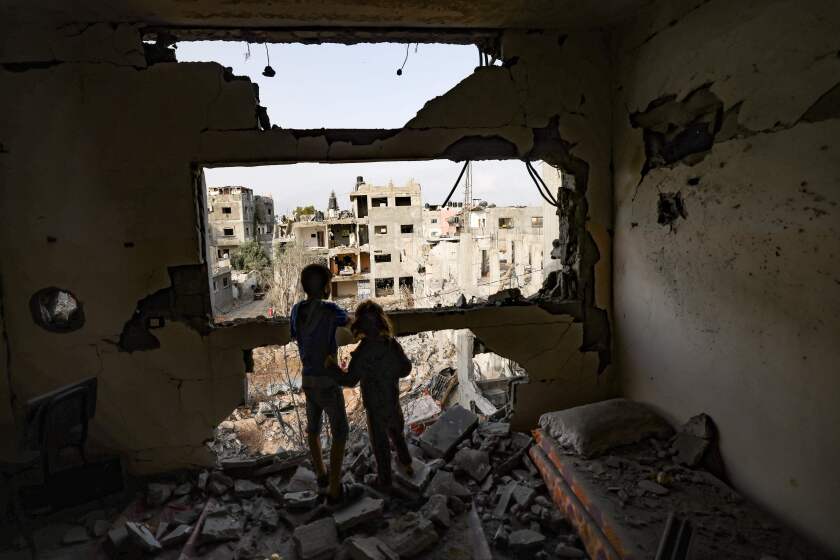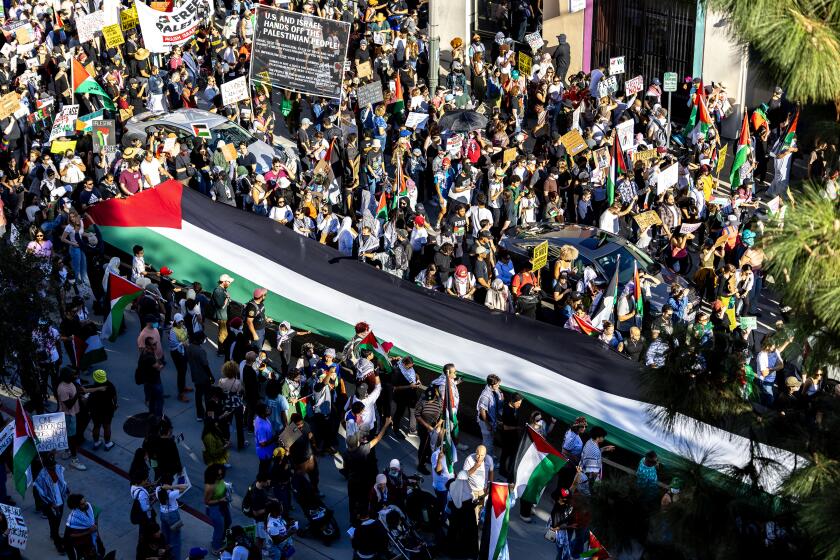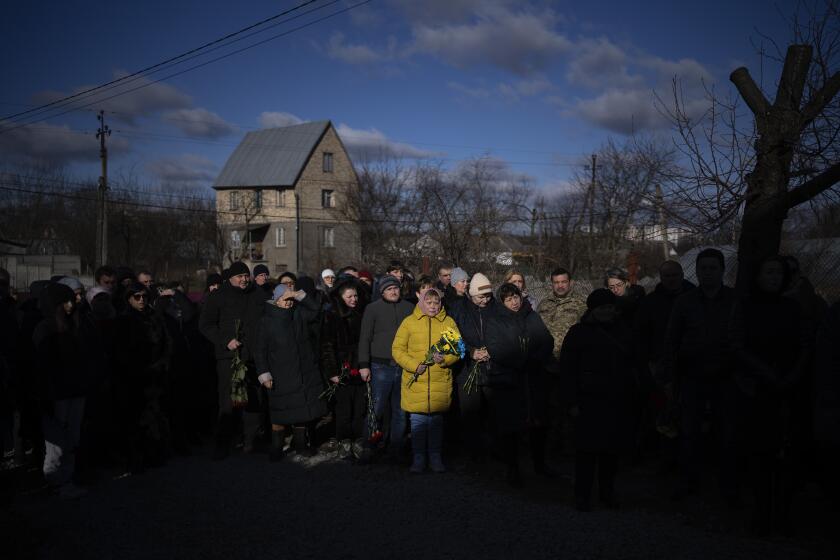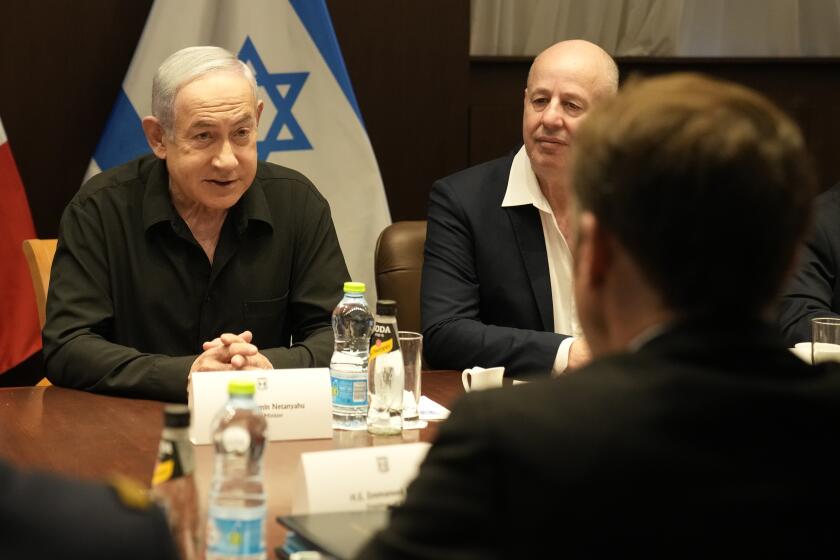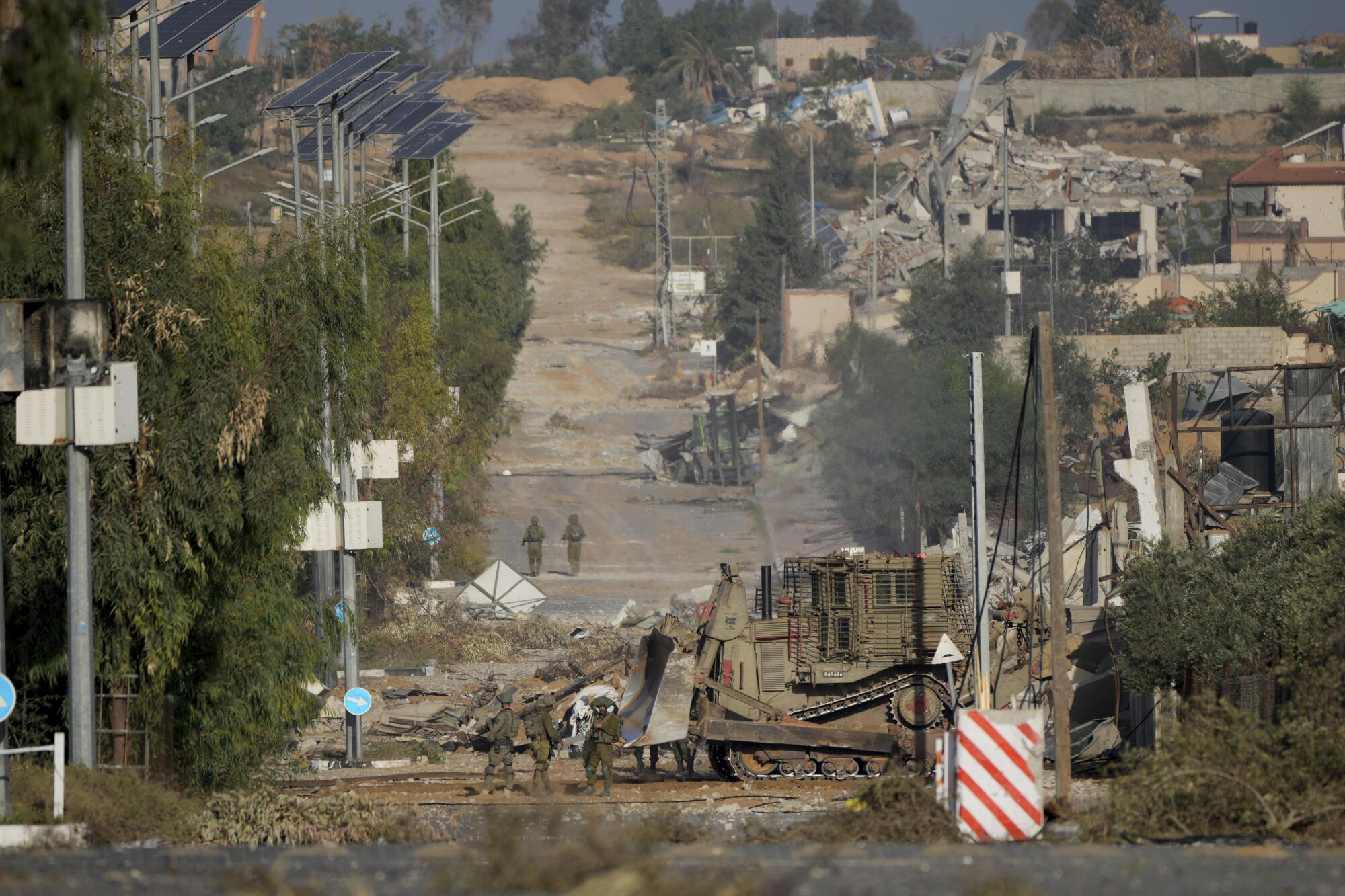
- Share via
DEIR AL BALAH, Gaza Strip — Hamas on Friday released 24 hostages who had been held captive in Gaza for weeks, including 13 Israelis, 10 people from Thailand and a Filipino citizen, according to Qatar and other officials, in the first stage of a swap for Palestinians prisoners in Israel under a four-day cease-fire deal.
The hostages, women and children, were soon returned to Israel, where officials said they underwent medical checkups. They were to be accompanied by soldiers to hospitals to be reunited with their families.
Qatar was a key mediator in the hostage release. The International Committee of the Red Cross, which delivered the hostages from Gaza into Egypt, also confirmed the release.
The agreement brought the first respite for beleaguered residents of Gaza and opened the way for sorely needed aid to flow in. It was also a moment of hope for families in Israel and elsewhere worried about loved ones taken captive during Hamas’ Oct. 7 attack, which triggered the war.
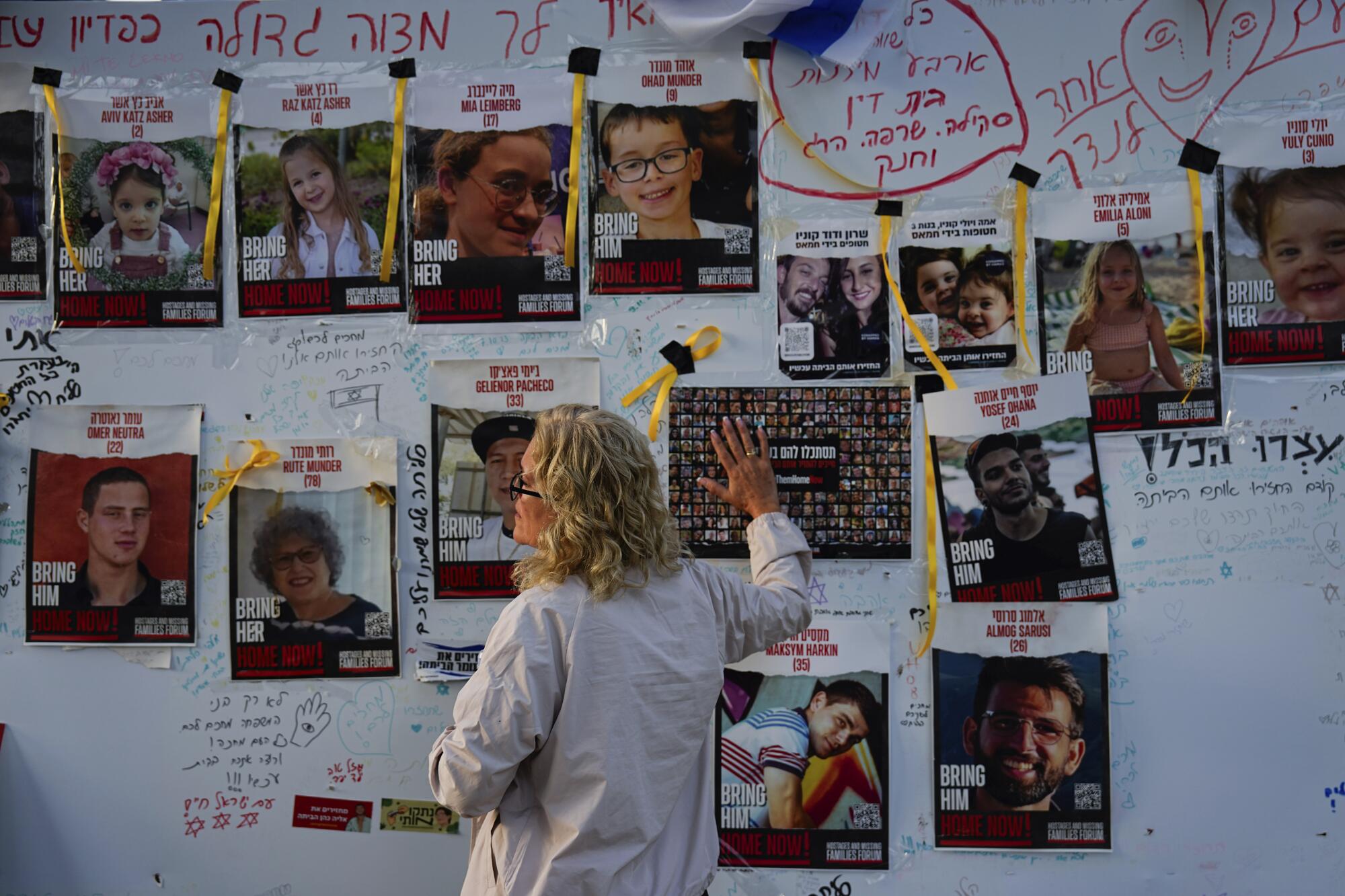
There were no reports of fighting in the hours after the truce began. Gaza’s 2.3 million Palestinians saw quiet after seven weeks of relentless Israeli bombardment, which has killed thousands, flattened vast swaths of the territory and driven three-quarters of the population from their homes. Rocket fire from Gaza militants into Israel went silent as well.
The release of the first group of Israeli hostages Friday was to be followed in the evening by the freeing of 39 Palestinian prisoners — 24 women, including some convicted of attempted murder for attacks on Israeli forces, and 15 teenagers jailed for offenses such as throwing stones.
Abdullah Alathamna’s family suffered when Israel shelled his family’s Gaza home in 2006. Now a father, he fears for his daughters. ‘I want to protect them,’ he says. ‘But I cannot.’
The truce raised hopes of eventually winding down the conflict, which has fueled a surge of violence in the occupied West Bank and stirred fears of a wider conflagration across the Middle East.
Israel, however, has said that it is determined to resume its massive offensive once the cease-fire ends.
Israeli media reports, citing security officials, said Hamas had handed over the group of 13 Israelis to the Red Cross, to be transported to Egypt.
The plight of around 240 people taken captive during Hamas’ attack has been wrenching for Israel, raising anger among some families that the government of Prime Minister Benjamin Netanyahu was not doing enough to bring them home.
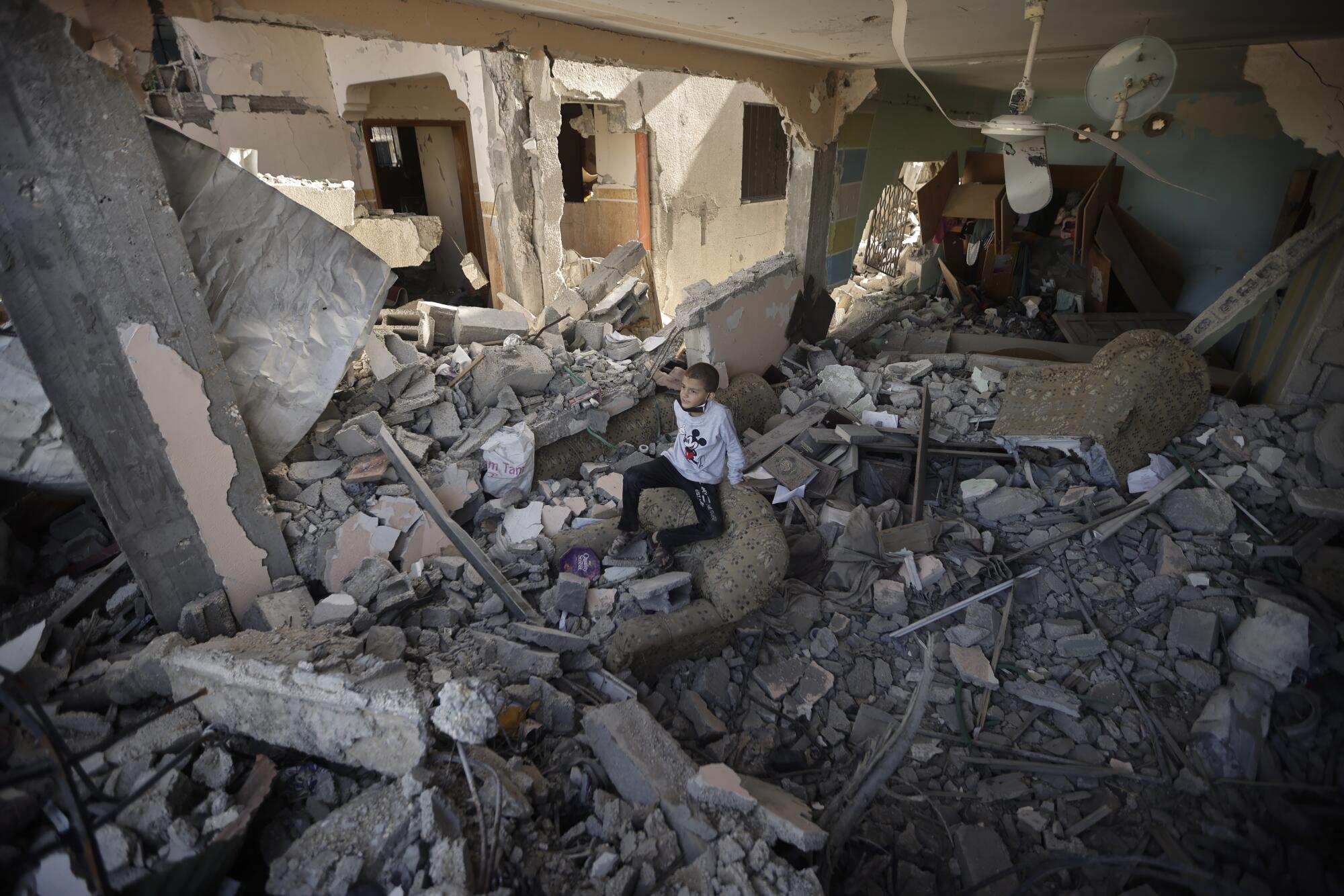
Under the deal, at least 50 are to be released — bringing relief but also bitterness that not all will be freed. It was not clear if the Thai captives were included in that figure. Israel is to free 150 Palestinian prisoners.
Ahead of Friday evening’s release, thousands of Israelis gathered in what has been dubbed “Hostages Square” in Tel Aviv, singing songs to welcome the Jewish Sabbath.
“My emotions are mixed,” Shelli Shem Tov, the mother of 21-year-old Omer Shem Tov, told Israeli’s Channel 12 at the square. “I’m excited for the families that are going to hug their loved ones, I’m jealous and I’m sad — mostly sad that Omer is not coming home yet.”
Thai Prime Minister Srettha Thavisin confirmed in a tweet the release of 12 Thai nationals. There was no immediate explanation for the discrepancy.
Where are Israel-Hamas war protests growing and how are messages shifting? Here’s what the data on over 2,000 pro-Palestinian and pro-Israeli demonstrations say.
Footage from Egypt’s Rafah border crossing showed a line of ambulances emerging from Gaza.
The International Committee of the Red Cross confirmed that it had delivered a total of 24 hostages to the Egyptians. But it declined to provide details on their nationalities or explain the discrepancy in the numbers.
Palestinians say a longer cease-fire is needed to recover from the humanitarian catastrophe in Gaza. But Friday’s halt in fighting at least brought the uprooted population a moment to take a breath after weeks of fleeing bombardment across the tiny coastal enclave and trying to find increasingly scarce food, water and other basic supplies.
After the truce began Friday morning, an increased flow of aid promised under the deal began. Four trucks of fuel and four trucks of cooking gas entered from Egypt, as well as 200 trucks of relief supplies, Israel said.
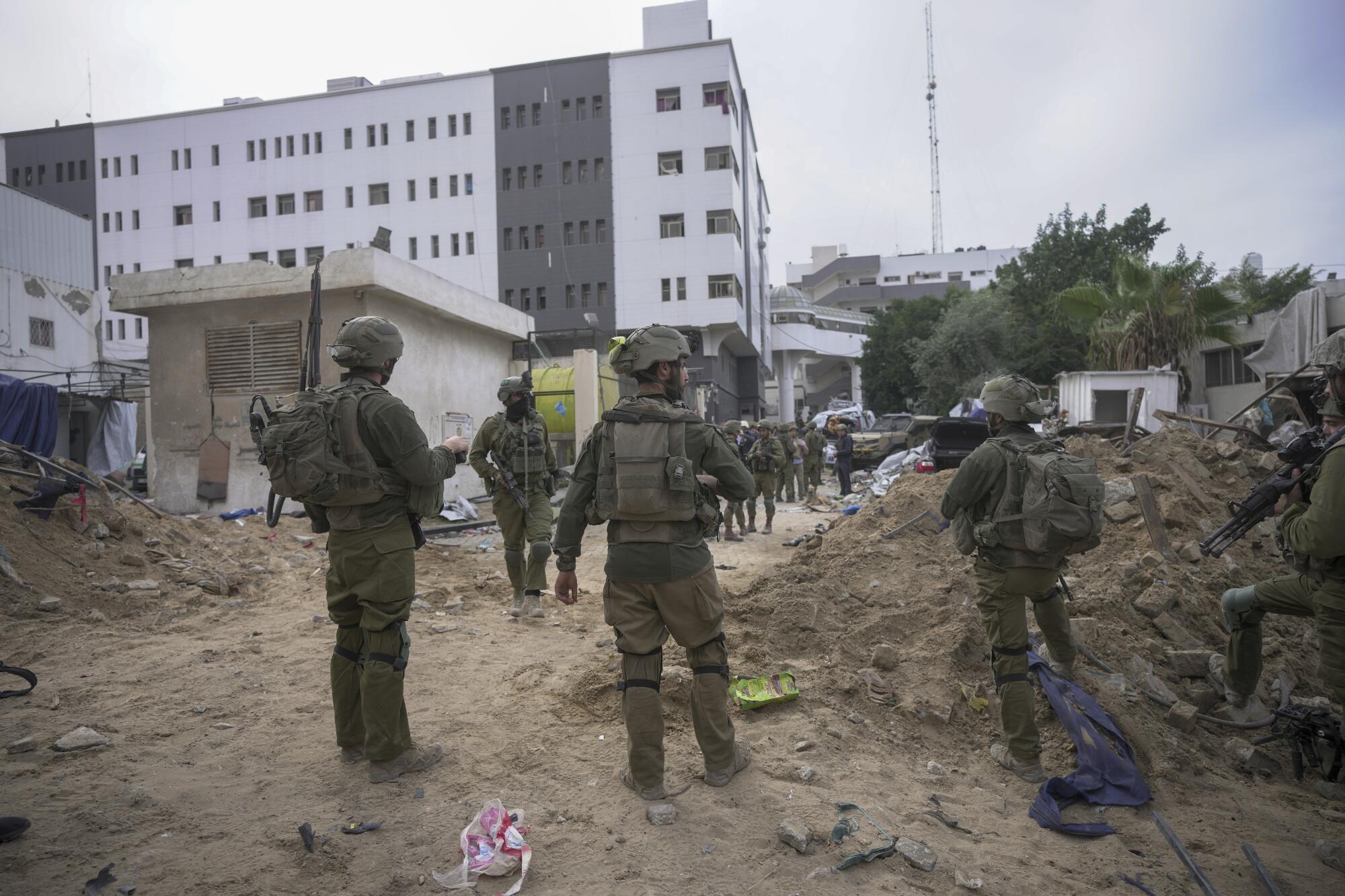
Since the war began, Israel barred all imports into Gaza, except for a trickle of supplies from Egypt.
Its ban on fuel — which it said could be diverted to Hamas — caused a territory-wide blackout. Hospitals, water systems, bakeries and shelters have struggled to keep generators running. Amid food shortages, United Nations officials had warned in recent weeks of the potential for starvation.
During the truce, Israel agreed to allow the delivery of 34,340 gallons of fuel per day — still only a small portion of Gaza’s estimated daily needs of more than 260,000 gallons.
Most of Gaza’s 2.3 million people are crowded into the southern portion of the territory, with more than 1 million living in U.N. schools-turned-shelters.
Breaking News
Get breaking news, investigations, analysis and more signature journalism from the Los Angeles Times in your inbox.
You may occasionally receive promotional content from the Los Angeles Times.
For those originally from the south, the calm brought a chance to visit homes they had fled and retrieve some belongings.
To the hundreds of thousands who evacuated from northern Gaza to the south, Israel issued a warning not to return. Northern Gaza has been the focus of Israel’s ground assault.
In leaflets dropped around the south, the Israeli military said it would block such attempts, saying the “the war has not ended yet.”
Still, hundreds of Gazans could be seen walking north Friday.
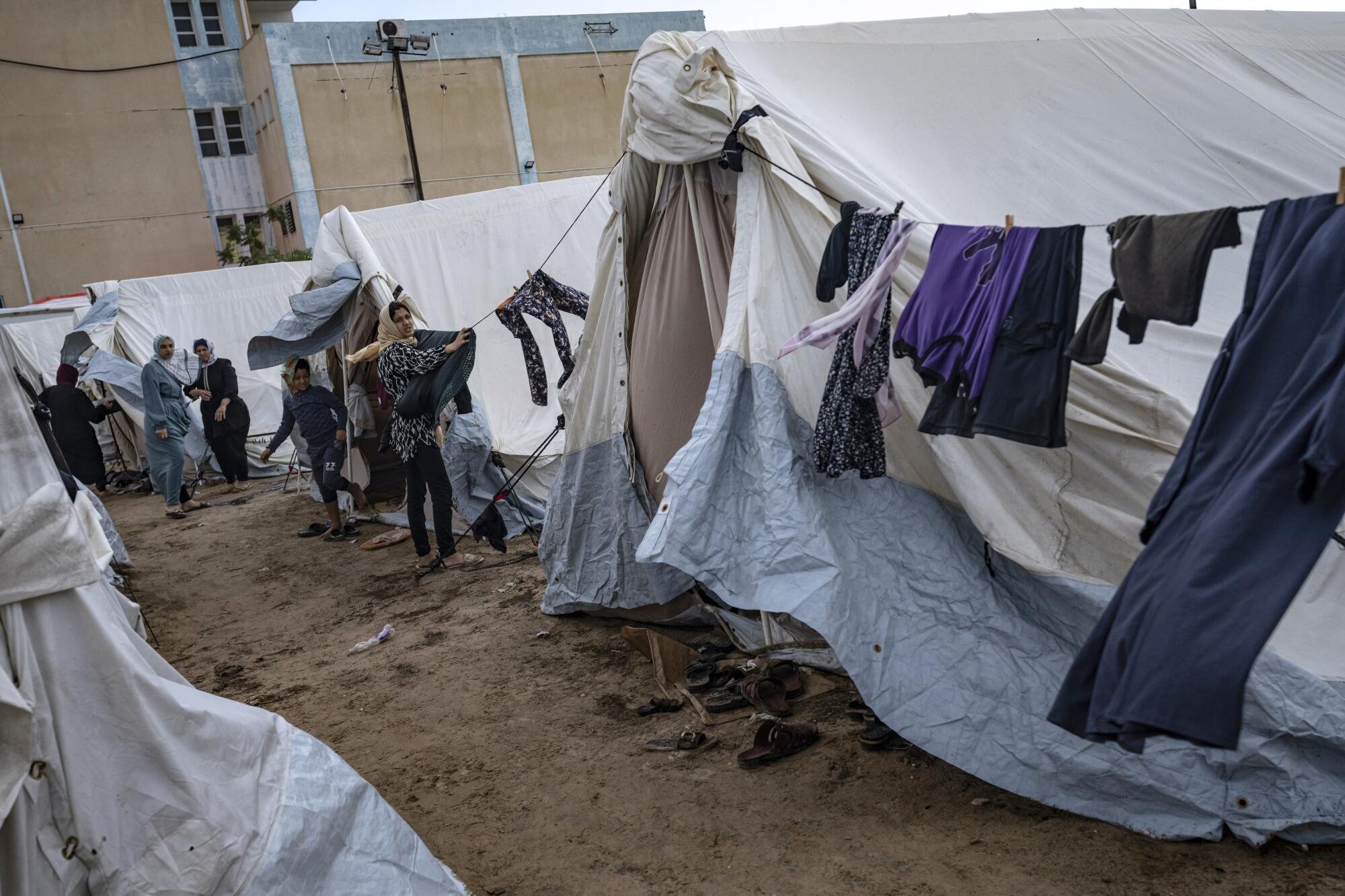
Two were shot and killed by Israeli troops and another 11 were wounded. An Associated Press journalist saw the two bodies and the wounded as they arrived at a hospital.
Sofian Abu Amer, who had fled Gaza City, said he decided to risk heading north to check on his home.
“We don’t have enough clothes, food and drinks,” he said. “The situation is disastrous. It’s better for a person to die.”
In the exchange deal, Israel and Hamas agreed to release women and children first. Israel said the four-day truce could be extended an extra day for every additional 10 hostages freed.
Among the Israelis freed are some who have a second nationality, according to a Hamas official who spoke on condition of anonymity because he was not authorized to discuss the details with the media.
As the Israel-Hamas war rages, Ukrainians worry that the world’s attention has swung away from their battle against Russia’s invasion.
A number of soldiers are among the hostages held by militants in Gaza. The Islamic Jihad militant group, which is reportedly holding about 40 captives, said soldiers will only be released in exchange for all Palestinians imprisoned by Israel.
It is not clear how many of the hostages are currently on active duty in the military or whether the militants also consider reserve soldiers to be military hostages.
According to the Palestinian Prisoners’ Club, an advocacy group, Israel is currently holding 7,200 Palestinians on security charges or convictions, including about 2,000 arrested since the start of the war.
Israel’s northern border with Lebanon was also quiet on Friday, a day after the militant Hezbollah group, an ally of Hamas, carried out the highest number of attacks in one day since fighting there began Oct. 8.
Israelis fault Prime Minister Benjamin Netanyahu for security failures that set the stage for war. Few see a path to leadership change amid the crisis.
Hezbollah is not a party to the cease-fire agreement but was widely expected to halt its attacks.
The war erupted when several thousand Hamas militants stormed into southern Israel, killing at least 1,200 people, mostly civilians, and taking scores of hostages, including babies, women and older adults, as well as soldiers.
The hope is that “momentum” from the deal will lead to an “end to this violence,” said Majed Ansari, a spokesman for the Foreign Ministry of Qatar, which served as a mediator along with the United States and Egypt.
But hours before it came into effect, Israeli Defense Minister Yoav Gallant told troops that their respite would be short and that the war would resume with intensity for at least two more months.Netanyahu has also vowed to continue the war to destroy Hamas’ military capabilities, end its 16-year rule in Gaza and return all the hostages.
The Israeli offensive has killed more than 13,300 Palestinians, according to the Gaza Health Ministry. Women and children have consistently made up around two-thirds of the dead, though the latest number was not broken down. The figure does not include updated numbers from hospitals in the north, where communications have broken down.
The ministry says some 6,000 people have been reported missing, feared buried under rubble.
The ministry does not differentiate between civilians and militants in its death tolls.
Israel says it has killed thousands of Hamas fighters, without presenting evidence for its count.
More to Read
Sign up for Essential California
The most important California stories and recommendations in your inbox every morning.
You may occasionally receive promotional content from the Los Angeles Times.
